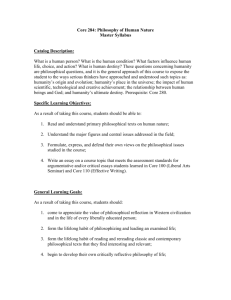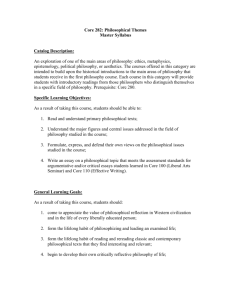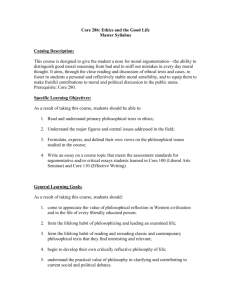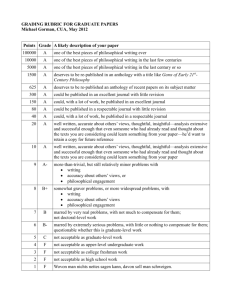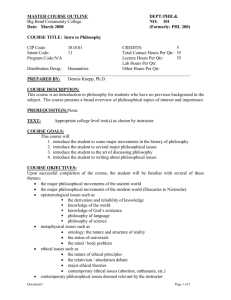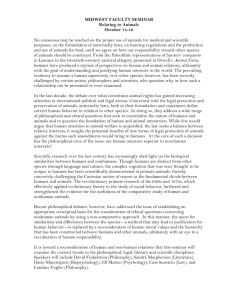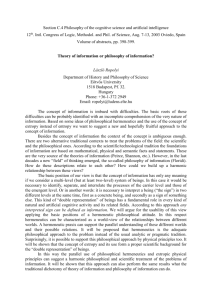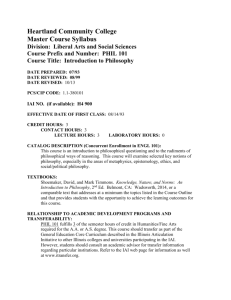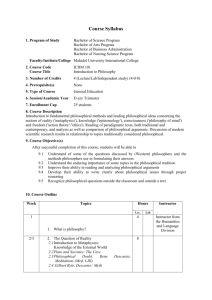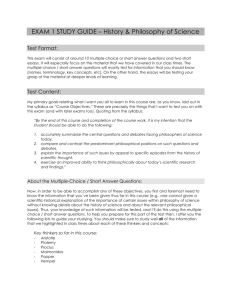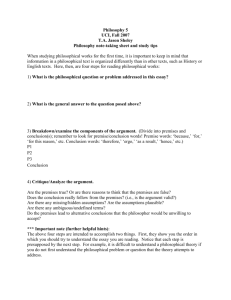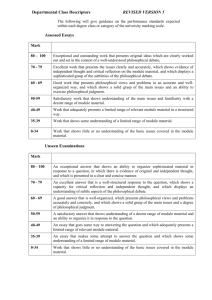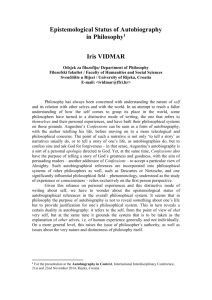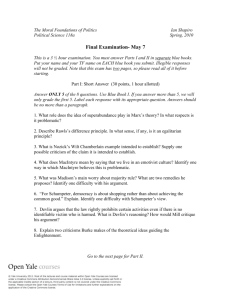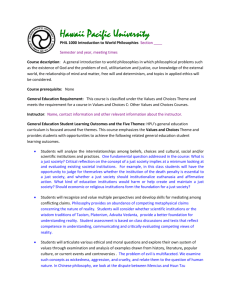Philosophy 101
advertisement
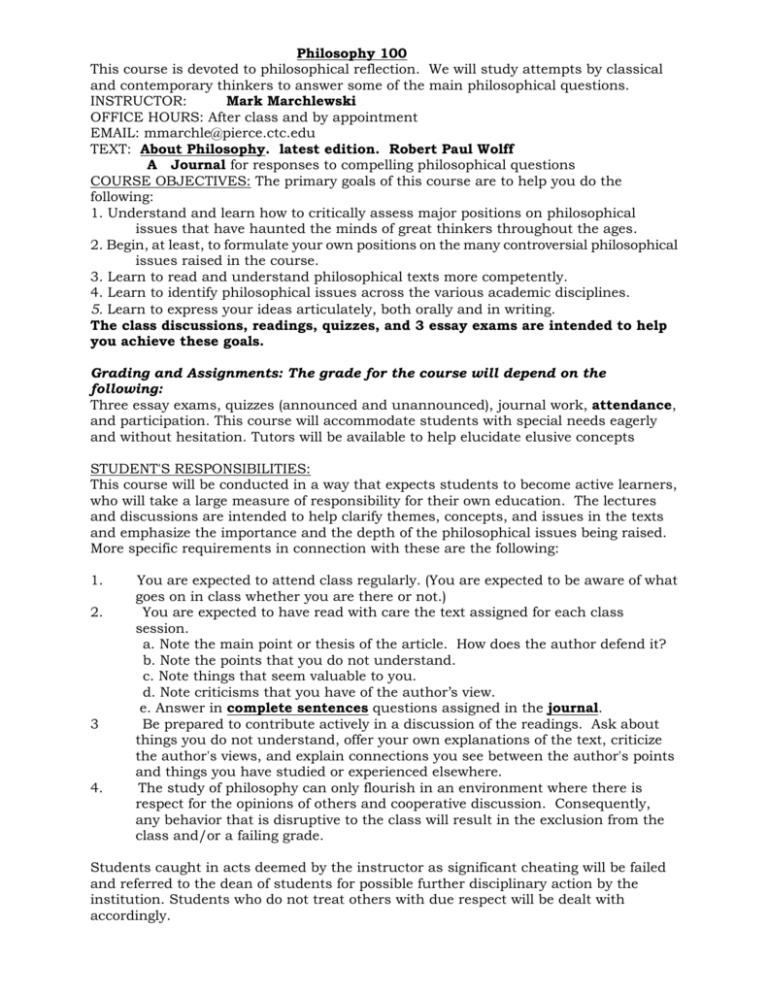
Philosophy 100 This course is devoted to philosophical reflection. We will study attempts by classical and contemporary thinkers to answer some of the main philosophical questions. INSTRUCTOR: Mark Marchlewski OFFICE HOURS: After class and by appointment EMAIL: mmarchle@pierce.ctc.edu TEXT: About Philosophy. latest edition. Robert Paul Wolff A Journal for responses to compelling philosophical questions COURSE OBJECTIVES: The primary goals of this course are to help you do the following: 1. Understand and learn how to critically assess major positions on philosophical issues that have haunted the minds of great thinkers throughout the ages. 2. Begin, at least, to formulate your own positions on the many controversial philosophical issues raised in the course. 3. Learn to read and understand philosophical texts more competently. 4. Learn to identify philosophical issues across the various academic disciplines. 5. Learn to express your ideas articulately, both orally and in writing. The class discussions, readings, quizzes, and 3 essay exams are intended to help you achieve these goals. Grading and Assignments: The grade for the course will depend on the following: Three essay exams, quizzes (announced and unannounced), journal work, attendance, and participation. This course will accommodate students with special needs eagerly and without hesitation. Tutors will be available to help elucidate elusive concepts STUDENT'S RESPONSIBILITIES: This course will be conducted in a way that expects students to become active learners, who will take a large measure of responsibility for their own education. The lectures and discussions are intended to help clarify themes, concepts, and issues in the texts and emphasize the importance and the depth of the philosophical issues being raised. More specific requirements in connection with these are the following: 1. 2. 3 4. You are expected to attend class regularly. (You are expected to be aware of what goes on in class whether you are there or not.) You are expected to have read with care the text assigned for each class session. a. Note the main point or thesis of the article. How does the author defend it? b. Note the points that you do not understand. c. Note things that seem valuable to you. d. Note criticisms that you have of the author’s view. e. Answer in complete sentences questions assigned in the journal. Be prepared to contribute actively in a discussion of the readings. Ask about things you do not understand, offer your own explanations of the text, criticize the author's views, and explain connections you see between the author's points and things you have studied or experienced elsewhere. The study of philosophy can only flourish in an environment where there is respect for the opinions of others and cooperative discussion. Consequently, any behavior that is disruptive to the class will result in the exclusion from the class and/or a failing grade. Students caught in acts deemed by the instructor as significant cheating will be failed and referred to the dean of students for possible further disciplinary action by the institution. Students who do not treat others with due respect will be dealt with accordingly.



